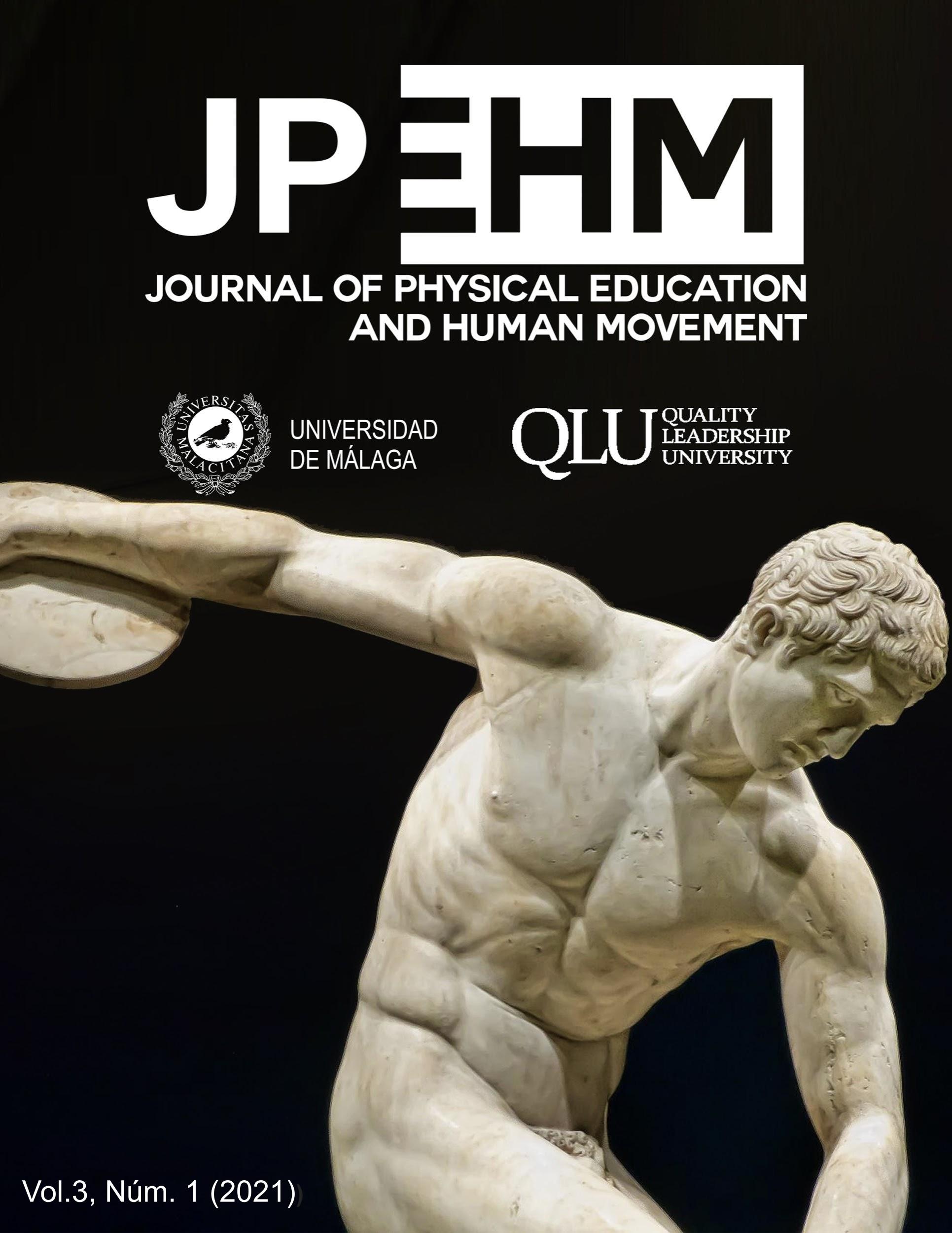Cheating in physical education. Why is this done and how can we avoid it?
DOI:
https://doi.org/10.24310/JPEHMjpehmjpehm.v3i110110Keywords:
Methodology, cheats, physical education, tasks, educational processAbstract
Introduction. Why do students cheat during Physical Education tasks and games? What makes them do that? How can we deal with classroom management in order to prevent this from taking place? An analysis and study are carried out on how students think with regard to cheating in games and tasks. In order for students not to see this as a valid and useful resource, the educational performance of the teaching team, family and social environment of adolescents must be guided correctly. These cheating situations carried out in the school environment are directly linked to the daily life of our students as in the midst of the educational process, the fact that they realize that the reasons that can lead to cheating are not valued on the part of the teacher for an improvement in academic performance, will aid to dispel the idea of practising it. Objetives.Therefore, the objectives pursued are threefold: (I) To discover the reasons that lead students to cheat (II) discover how students would act in these situations and (III) determine an appropriate approach in physical education to avoid these situations. Method. Data is collected by means of two questionnaires, each containing six questions, which seek to discover the reasons for students cheating and how they would act in the case of being responsible for managing cheating during physical education sessions. Results. Mainly, students highlight that the reasons for carrying out or for being prone to implement cheating are related to thinking that their academic performance springs from the different marks they obtain in each task. Moreover, they are inclined to sanction students who cheat, and the types of sanctions can vary. Conclusions. Finally, it is concluded that the focus of not only education itself, but specifically Physical Education, marks the increase or decrease of the probability that students become aware that cheating is not necessary to obtain a good academic performance and positive feedback from both teachers and students’ peers.
Downloads
Metrics
Downloads
Published
How to Cite
Issue
Section
License
Aquellos autores/as que tengan publicaciones con esta revista, aceptan los términos siguientes:
- Los autores/as conservarán sus derechos de autor y garantizarán a la revista el derecho de primera publicación de su obra, el cuál estará simultáneamente sujeto a la Licencia de reconocimiento de Creative Commons que permite a terceros compartir la obra siempre que se indique su autor y su primera publicación esta revista.
- Los autores/as podrán adoptar otros acuerdos de licencia no exclusiva de distribución de la versión de la obra publicada (p. ej.: depositarla en un archivo telemático institucional o publicarla en un volumen monográfico) siempre que se indique la publicación inicial en esta revista.
- Se permite y recomienda a los autores/as difundir su obra a través de Internet (p. ej.: en archivos telemáticos institucionales o en su página web) antes y durante el proceso de envío, lo cual puede producir intercambios interesantes y aumentar las citas de la obra publicada. (Véase El efecto del acceso abierto).







15.png)
